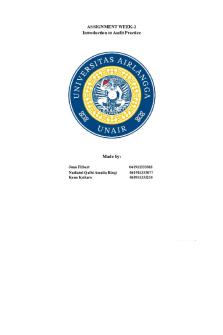Jensen Shoes Case Study fghtrsh htsryhgb PDF

| Title | Jensen Shoes Case Study fghtrsh htsryhgb |
|---|---|
| Author | Tushar Soni |
| Course | MCA&P |
| Institution | Amity University |
| Pages | 3 |
| File Size | 130.2 KB |
| File Type | |
| Total Downloads | 81 |
| Total Views | 126 |
Summary
dsfg cghtd hrx bhyfc drty gegbvc ggfrd eytrkvc dtdyuhbbvb ggtyhdgn cnmtynb tyydtrbbb rtydfx cgc ytxdyd tux...
Description
Jensen Shoes : Jane Kravit’z Shoes About the company Jensen Shoes, established in 1953 – was a trendsetter and was leading in the American markets for a range of footwear. They valued their employees as much as they valued their customers and followed an ‘open door policy’ which became a model for other managers. Structure
Problem Statements 1.
Clearly identify the factors that might have influenced Jane Kravitz’s perception of Lyndon Brooks and his performance
•
Chuck had given glowing reviews about other 2 members, but he was less enthusiastic when it came to Lyndon. So this was the main reason why Jane had an inhibition about Lyndon, even before she met with him Despite having worked with him in the past and having a good experience; Lyndon’s past performance reviews by Chuck influenced her perception about Lyndon Jane assumed that Lyndon was not keen on working under her; instead of asking him for the reason
• •
• • • • • •
2.
• • • • • •
Jane considered herself to be a good manager, and hence ignored the fact why Lyndon was not keen on working Jane was too conscious to make Lyndon happy & ignored other parameters Lack of proper and direct communication between Jane and Lyndon was one of the crucial reasons Jane blamed the company’s culture for Lyndon’s behaviour Jane is more concerned about the bonuses and fulfilling targets than actually finding out what has led to the change in Lyndon’s reluctant behaviour Lyndon was being reluctant when Jane reached out to him multiple times
What are some of the potential errors (perceptual distortions or common biases) Jane Kravitz’s could be making in her judgement about Lyndon Brooks? Explain citing the evidences from the case Jane gave Lyndon the African – American Latino segment out of all the other available segments because Lyndon was African American Jane wanted to prove her good managerial skills, and hence decided to tell Chuck about Lyndon’s achievements immediately She again assumed that throwing birthday parties, taking him out for lunches was the kind of motivation Lyndon wanted Burdened him with 2 assignments, despite him raising a concern Lacked managerial skills like – motivating, negotiating, developing peer relationships, Carrying out negotiations, Motivating subordinates Jane started questioning the ‘Open door policy’ as a result of one employee’s behaviour
Analysis – • • •
• •
Jane K, had selective perception towards Lyndon basis her conversation with Chuck Despite her good experience with Lyndon in the past, her opinion about him was biased as she only focused on the negative feedback given by others (Horns Effect) In order to motivate Lyndon to work better, she decided to use positive reinforcement by rewarding his performance - throwing him a birthday party, taking him out for lunch, but didn’t analyse if this was the best course of action (since motivation for each person is subjective) Jane assumed that Lyndon must have felt it a comedown to report to her, since she had faced a similar situation in the past (Projection) Lyndon out-performed the assigned special project on Environmental Consumer buying trends, even though it was his very first time since he knew that Jane coached him and had high expectations. (Pygmalion effect)
Sr No. 1 2 3 4 5
Name Ayushi Sancheti Devansh Shrivastava Jeevan Babyloni Praveen Singh Tushar Soni
Roll No. 21M105 21M108 21M112 21M122 21M136...
Similar Free PDFs

Apollo Shoes Case 7e Revised
- 160 Pages

Jensen integrity
- 6 Pages

shoes manufacturing feasability
- 29 Pages

New Shoes Simulation Analysis
- 10 Pages

Tesco-Case-Study - Case Study
- 3 Pages

Jensen and Meckling (1976)
- 56 Pages

Jensen 2003 - hjhjhj
- 2 Pages

Case 7 - Case Study
- 1 Pages

Case 9 - Case study
- 6 Pages

Case-7 - case study
- 5 Pages

Tesla Case - CASE STUDY
- 22 Pages

CASE Accenture - case study
- 3 Pages

Schizophrenia. case - case study
- 4 Pages

Meiorin case - Case Study
- 2 Pages
Popular Institutions
- Tinajero National High School - Annex
- Politeknik Caltex Riau
- Yokohama City University
- SGT University
- University of Al-Qadisiyah
- Divine Word College of Vigan
- Techniek College Rotterdam
- Universidade de Santiago
- Universiti Teknologi MARA Cawangan Johor Kampus Pasir Gudang
- Poltekkes Kemenkes Yogyakarta
- Baguio City National High School
- Colegio san marcos
- preparatoria uno
- Centro de Bachillerato Tecnológico Industrial y de Servicios No. 107
- Dalian Maritime University
- Quang Trung Secondary School
- Colegio Tecnológico en Informática
- Corporación Regional de Educación Superior
- Grupo CEDVA
- Dar Al Uloom University
- Centro de Estudios Preuniversitarios de la Universidad Nacional de Ingeniería
- 上智大学
- Aakash International School, Nuna Majara
- San Felipe Neri Catholic School
- Kang Chiao International School - New Taipei City
- Misamis Occidental National High School
- Institución Educativa Escuela Normal Juan Ladrilleros
- Kolehiyo ng Pantukan
- Batanes State College
- Instituto Continental
- Sekolah Menengah Kejuruan Kesehatan Kaltara (Tarakan)
- Colegio de La Inmaculada Concepcion - Cebu

